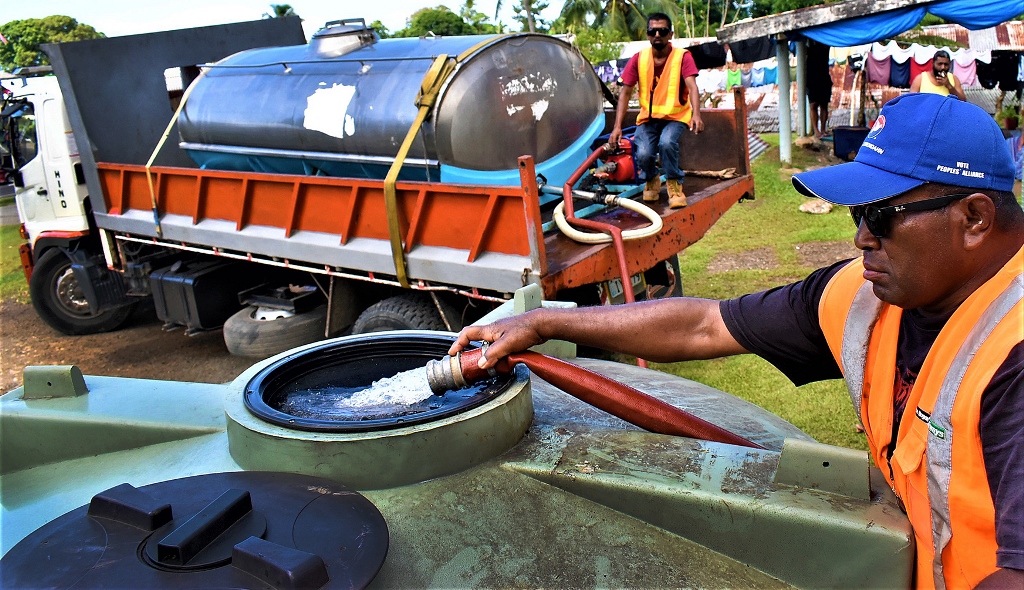It is good to know that 70 per cent of the water system along Suva to Nausori was restored as of midday yesterday.
This followed a major shutdown at the Waila Water Treatment Plant on Friday.
Public Works Minister Ro Filipe Tuisawau, while acknowledging the water woes faced by residents at the weekend, said it was a direct result of the lack of long term planning and under investment for water services by the previous government.
While the Suva-Nausori population, he said, had grown and significant urban drift had taken place, the state of water infrastructure had been allowed to deteriorate.
Restoration works for water supply, he said, were still in progress within the Nasinu system.
“We have inherited a water supply system for Fiji’s Capital City, with no redundancy in the system to withstand rainfall variation or even to carry out essential repairs without impacting the whole city and impacting peoples’ lives,” Ro Filipe said.
“As minister in-charge I stress that this situation must be rectified and we as a government will commit to improve this situation in our four year term.”
He has called for an urgent review of the state of asset management of other critical assets within Suva-Nausori, to ensure Government was able to urgently invest in critical asset improvement works needed to avoid such incidents in the future.
According to the United Nations, water is at the core of sustainable development and is critical for socio-economic development, energy and food production, healthy ecosystems and for human survival itself.
Water, it says, is also at the heart of adaptation to climate change, serving as the crucial link between society and the environment.
Water is also a rights issue.
As the global population grows, it notes, there is an increasing need to balance all of the competing commercial demands on water resources, so that communities have enough for their needs.
In particular, women and girls must have access to clean, private sanitation facilities to manage menstruation and maternity in dignity and safety.
At the human level, water, it suggested, cannot be seen in isolation from sanitation.
Together, they are vital for reducing the global burden of disease and improving the health, education and economic productivity of populations.
It pointed out that 2.2 billion people lack access to safely managed drinking water services.
Almost 2 billion people, it said, depend on health care facilities without basic water services and over half of the global population or 4.2 billion people lack safely managed sanitation services.
It said 297,000 children under five die every year from diarrhoeal diseases due to poor sanitation, poor hygiene, or unsafe drinking water and that two billion people live in countries experiencing high water stress.
In highlighting this, we reflect on our own issues at home.
The people will look up to the powers that be to sort out issues that are critical to delivering clean water consistently.
The reality is that no one wants excuses.
All they want is water to come off their taps when they switch them on!
We realise we have a system that needs attention, however, that is a challenge for the powers that be to address.
Going without water over the past few days, or receiving intermittent supply was frustrating.
It was stressful and a major inconvenience for many families.
We urge the powers that be to fix that.
But in saying that, we also must play our part when water supply comes back on.
Let’s be mindful of how we use water, and place value on conserving it.
Every drop counts!






